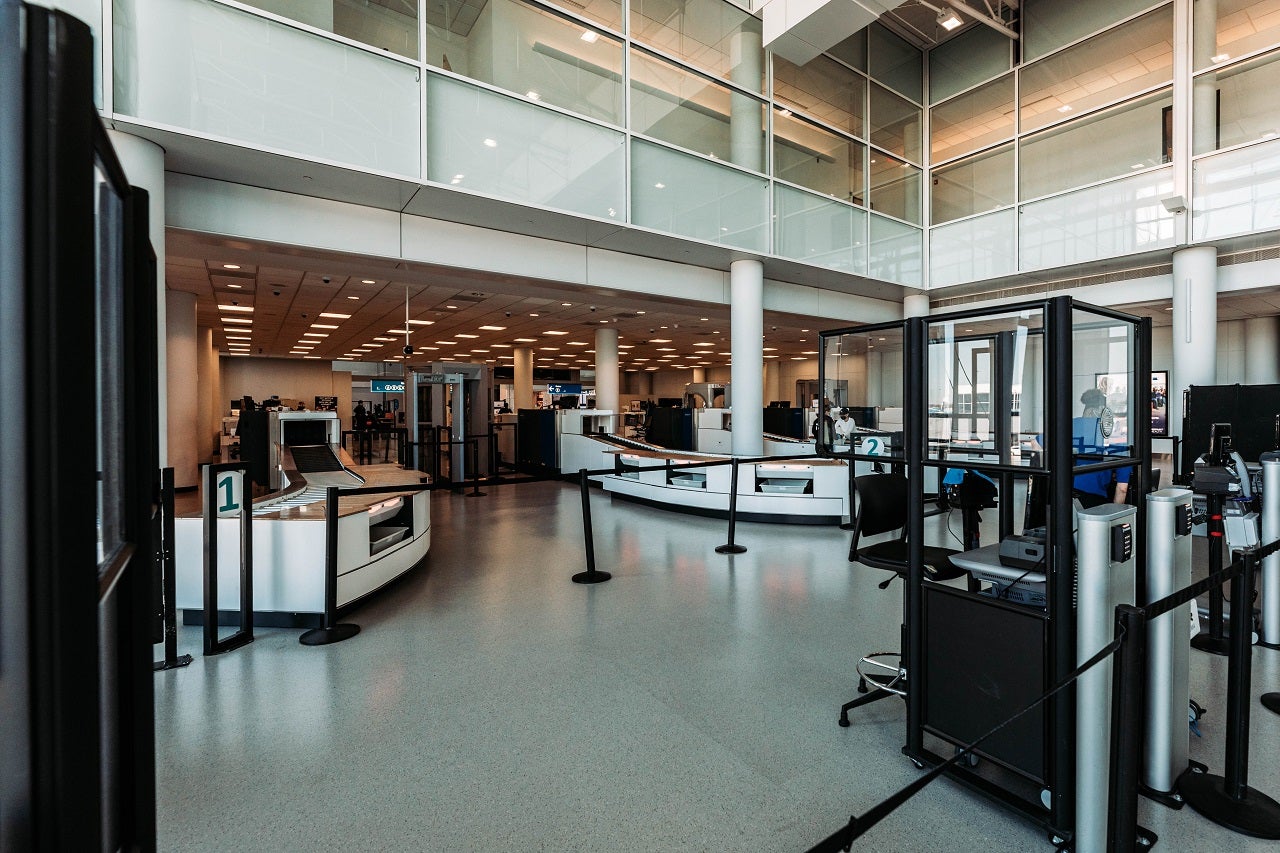
Charlotte Douglas International Airport (CLT) in the US has installed automated screening lanes (ASLs) at security Checkpoint E, located at the east end of the terminal.
CLT provided finances for the testing, maintenance and deployment of the five ASL lanes, which were later gifted to the Transportation Security Administration (TSA).

Discover B2B Marketing That Performs
Combine business intelligence and editorial excellence to reach engaged professionals across 36 leading media platforms.
This technology will amplify security efficiency, as well as reduce the amount of time passengers spend in the security screening process.
The installation of the lanes was finished in December 2020.
TSA stated that its local officers have been training and certifying on the new technology over the last two months.
Acting aviation director Haley Gentry said: “As part of the airport’s capital improvement programme, Destination CLT, we continue to incorporate innovative technology throughout the terminal to improve the passenger experience from beginning to end.

US Tariffs are shifting - will you react or anticipate?
Don’t let policy changes catch you off guard. Stay proactive with real-time data and expert analysis.
By GlobalData“We’re happy to partner with TSA to install the automated screening lanes at Checkpoint E, which will offer enhanced security for our local passengers, as well as an expedited screening experience.”
TSA CLT federal security director Kevin Frederick said: “The installation of these automated screening lanes at Charlotte Douglas International Airport exemplifies the commitment by both TSA and airport officials to seek out and employ the most advanced security technologies to ensure the safety of our traveling public.”
To improve the screening process, these ASLs consist of numerous new features.
Some of the features include remote screening capability, bamboo countertops to allow multiple travellers to place their belongings in bins at the same time, and automated and powered rollers to move the bins.
These ASLs automatically divert any carry-on bag that may contain a banned item.
Each bin has unique radio frequency identification (RFID) tags for added accountability of a passenger’s carry-on belongings.
To date, TSA has supervised installation of around 231 automated screening lanes in security checkpoints at 18 airports in the country.
In a separate development, health and wellness company XpresSpa signed a contract with Metropolitan Washington Airports Authority for XpresCheck Covid-19 testing facilities at Dulles International Airport and Reagan National Airport.
Both sites are expected to commence services in mid-March.



